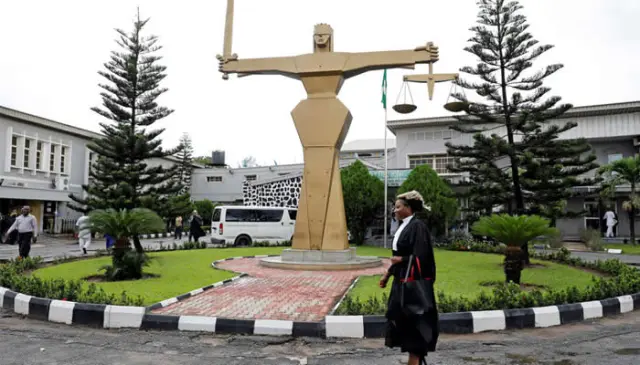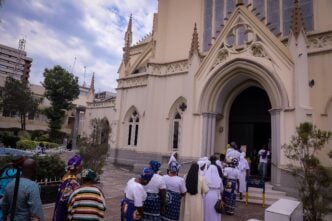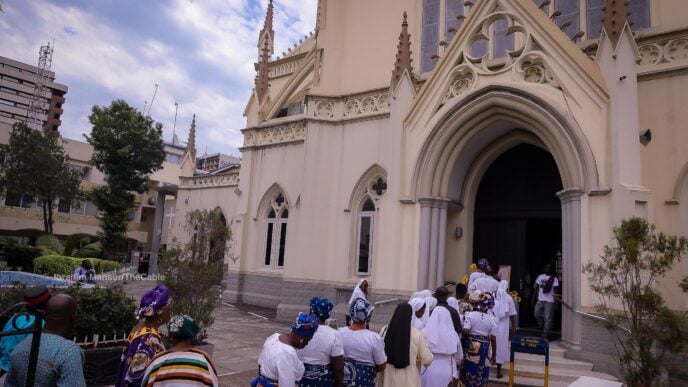BY OYETOLA MUYIWA ATOYEBI
In Nigeria’s electoral litigation, time is a major deciding factor. The Constitution itself, under section 285 of the 1999 Constitution (as amended), dictates how swiftly election-related cases must be filed and determined. Pre-election matters, for instance, must begin and end within 180 days. That rule, aimed at ensuring certainty and finality before election day, has made election litigation one of the most time-sensitive branches of Nigerian law.
To meet this constitutional demand for speed, the Chief Judge of the Federal High Court issued the Federal High Court (Pre-Election) Practice Directions 2022. The key innovation being that every pre-election matter must be filed using an Originating Summons, a procedure designed for cases that do not involve serious disputes of fact. The thinking behind this is clear: affidavit evidence is faster to deal with than full-blown trials involving oral testimony, cross-examination, and the parade of witnesses typical of a Writ of Summons. In other words, less drama, more speed.
But as recent judicial decisions have shown, this push for procedural efficiency may have created a legal paradox, one that risks turning the pursuit of speed into an obstacle to justice itself.
Advertisement
At first glance, using an Originating Summons for pre-election matters seems like a clever solution. Election petitions are time-bound; courts must move quickly. An Originating Summons, built around affidavit evidence and legal argument, offers the fastest possible route. It fits the constitutional demand for dispatch.
However, Nigeria’s Supreme Court has repeatedly warned that the procedure is only suitable when the facts are not in dispute. Once there are conflicting affidavits, contested narratives, or allegations of wrongdoing, the court cannot decide the case fairly without hearing witnesses in person. That, in legal terms, is the domain of a Writ of Summons.
And herein lies the conundrum. Most pre-election disputes, especially those involving party primaries, are built on allegations of fraud, forgery, or manipulation. They are anything but straightforward. Yet the Practice Directions compel litigants to use a process meant for cases without factual disputes. When they do so, their cases risk being thrown out as incompetent. If they defy the Practice Directions and file a Writ of Summons, they face immediate objections for using the “wrong” procedure. It’s a procedural trap either way.
Advertisement
The problem came into sharp focus in APC v. Bashir Sheriff, the now-famous “Yobe North” case that threw the ruling party’s internal nominations into turmoil. The dispute revolved around whether a candidate who had lost the presidential primary could validly contest a senatorial primary. The trial court and the Court of Appeal ruled one way; the Supreme Court another.
While the substance of the judgment drew political headlines, the real jurisprudential takeaway was the Supreme Court’s warning about procedure. Justice Nweze held that since the case involved allegations of fraud and contradictory affidavit evidence, it was wrongly commenced by Originating Summons. In his view, such disputes required the full rigour of a Writ of Summons, complete with pleadings, witnesses, and cross-examination.
This interpretation has since become the stumbling block for many pre-election litigants. If allegations of fraud automatically make an Originating Summons inappropriate, then almost every serious pre-election case becomes vulnerable. And yet, the Practice Directions make the use of that very procedure mandatory.
To understand why this conflict matters, one must grasp the hierarchy between the Federal High Court (Civil Procedure) Rules 2019 and the Pre-Election Practice Directions 2022. The Practice Directions were made by the same Chief Judge who issued the Rules, but they contain a crucial clause: they apply “notwithstanding the provisions of the Federal High Court (Civil Procedure) Rules.” The word “notwithstanding” is no small matter, as it means the Practice Directions override any conflicting rule.
Advertisement
By that logic, the mandatory use of Originating Summons should prevail. Yet, the Supreme Court in APC v. Bashir Sheriff relied on Order 3 Rule 2(b) of the 2019 Rules, which bars the use of Originating Summons in cases alleging fraud, to strike out the suit. Many commentators have argued that this approach effectively disregarded the “notwithstanding” clause of the Practice Directions.
The tension exposes a deeper problem in Nigeria’s procedural jurisprudence: the tendency of courts to elevate technical rules above substantive justice. As the Supreme Court once wisely cautioned, rules of court are meant to aid the cause of justice, not to enslave it. In Atiku Abubakar v. Yar’Adua, the late Justice Niki Tobi put it bluntly: “Rules of Court are not made to punish parties for their mistakes but to help the court reach justice.”
The resultant effect of the 2022 Practice Directions and the interpretation of the Supreme Court is that parties now file appeals and counter-appeals over the right procedure rather than the substance of their grievances. Instead of quick resolutions, we get technical knockouts, protracted confusion, and in the middle of it all, the constitutional 180-day clock keeps ticking.
In practical terms, this means litigants are often left in a procedural no-man’s-land. File by Originating Summons, and your case may be dismissed for being contentious, or file by Writ of Summons, and you’ll be told you disobeyed the Practice Directions. The more worrying consequence is that this procedural rigidity undermines public confidence in the judiciary’s ability to handle politically sensitive disputes fairly.
Advertisement
So how can the legal system escape this procedural cul-de-sac? The answer lies in restoring judicial discretion, the ability of judges to decide, case by case, which procedure best serves justice. One practical reform would be to amend Paragraph 4 of the Practice Directions to read:
“Pre-election matters shall be commenced by Originating Summons; provided that where the reliefs sought are founded on allegations of fraud, forgery, or other complex factual disputes, the court may, upon application or on its own motion, direct that the matter proceed by Writ of Summons.”
Advertisement
Such a rule would maintain the preference for speed while allowing flexibility in exceptional cases. It would also align with established judicial principles, allowing courts to convert one form of originating process into another when the facts so demand. This way, the 180-day constitutional clock would still run from the original filing date, avoiding unnecessary restarts.
Equally important, objections about the “mode of commencement” should be raised promptly at the trial stage. Once a case proceeds without challenge, parties should not be allowed to resurrect technical objections on appeal. As the courts have repeatedly held, procedural jurisdiction must be invoked timeously, not as an afterthought when the case has gone badly.
Advertisement
The deeper lesson in this entire debate goes beyond election law. It speaks to a recurring theme in Nigerian jurisprudence: the struggle between form and substance. Our Courts have long recognised that justice is not a matter of perfect formality. It is, at its core, about fairness. As one Supreme Court Justice memorably noted, “the court’s business is to determine the rights of parties, not to punish them for mistakes made in the litigation process.”
When procedure becomes a trap rather than a guide, the system has lost sight of that mission. Election cases, more than any other, require both speed and fairness. But speed without fairness is a hollow victory. The mandatory use of Originating Summons in all pre-election cases was born out of good intentions, a desire to ensure that election disputes are resolved swiftly before the polls. But good intentions cannot cure a bad fit. The reality is that most pre-election disputes are factually messy, politically charged, and legally complex.
Advertisement
The time has come for Nigeria’s judiciary to recalibrate the balance between procedural efficiency and substantive justice. The solution lies not in rigid adherence to a one-size-fits-all rule but in empowering judges with the discretion to choose the right tool for each case. Thereby ensuring that the Courts truly meet their constitutional duty of delivering justice not just quickly, but rightly.
Atoyebi, a senior advocate of Nigeria, fellow of the Chartered Institute of Arbitrators (UK), a notary public, and the managing partner at Omaplex Law Firm, writes from Abuja.
Views expressed by contributors are strictly personal and not of TheCable.





